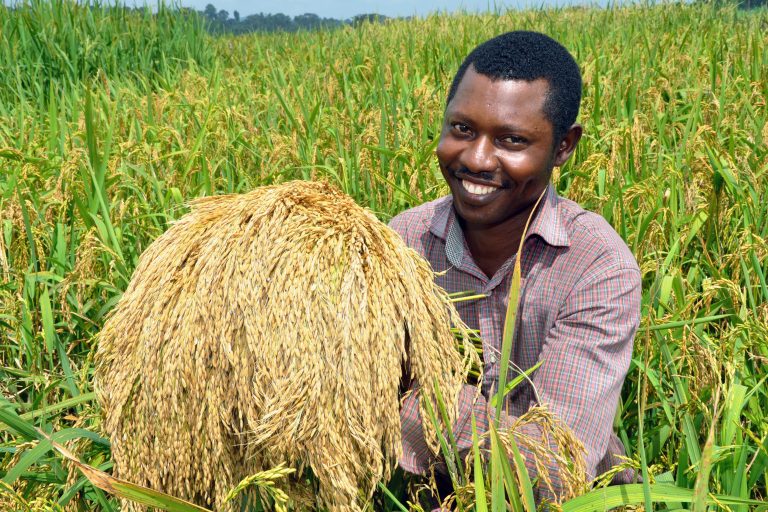THE GAMBIA: TAAT highlights game-changing innovations at National Rice Forum

Technologies for African Agricultural Transformation (TAAT) alongside the UN Food and Agriculture Organisation (FAO), and the AfricaRice Centre have underlined the imperatives of adopting proven innovations in the race to transform the rice sector in the Gambia. This was made known at the 2023 edition of the National Rice Forum of the Gambia organised by the Gambia Ministry of Agriculture of the Gambia. The forum held from the 1st to 2nd Sept 2023 in Banjul.
The forum and policy dialogue brought together all relevant stakeholders within the rice value chain to critically discuss the challenges impeding local rice production and come up with tangible solutions. TAAT was represented at the forum by its Rice Compact led by the AfricaRice Centre
The forum produced a clear and concise roadmap that will guide the country in its match towards achieving rice self-sufficiency by 2030. Eight thematic areas – Land use and access, land development, water use and management, input, services and marketing, post-harvest operation, mechanization, Research extension and development, and policy support and financing.
The forum brought together more than 600 rice stakeholders from the public and private sector. The Director General of AfricaRice, Dr Baboucarr Manneh gave a keynote presentation on rice Research Extension and Development while Dr Sali Ndindeng, the acting TAAT Rice Compact Leader provided valuable insights on mechanization, and input, services and marketing.
Moshibudi Rampedi, FAO Representative in the Gambia passionately painted a picture of rice’s significance in The Gambia and the pressing need to boost local production. Ms. Rampedi’s message was clear: collective action is necessary to achieve food and nutrition security.
“We need drivers for change, collective actions, better sectoral governance, and effective engagement of all actors in the rice value chain.” She stated.
Rice, an integral part of Gambian cuisine thrives in the nation’s fertile soils and the abundance of the river Gambia. However, over the years production levels are lower than they used to be making Gambia increasingly dependent on imports to meet growing national demands.
Ms. Rampedi emphasized the importance of the rice commodity in her remarks to the National Rice Forum and Policy Dialogue, she stated that “Rice is more than just a crop; it is a staple food with an annual per capita consumption estimated at 117 kg or 320g daily per person, we must do more to meet our nation’s food and nutrition requirements”. Hence a need to ensure that available arable land is nurtured to boost productivity.
“The private sector must become a driving force in the rice value chain. We need quality investments, and government incentives should pave the way for responsible investment. This is not just about food and nutrition security; it’s about gender equality, youth empowerment, land tenure rights, and sustainable natural resources use in the face of the pressing need to address climate change adaptation and mitigation,” Rampedi added.
Confirming the government’s dedication and commitment, Honourable Baboucarr Buoy, Minister of Public Services officiated the Forum on behalf of His Excellency President Adama Barrow, he highlighted that the Government of the Gambia is unwavering in her pledge to achieve rice self-sufficiency.
Honourable Dr Demba Sabally, Minister for Agriculture underlined the historical importance and rice’s paramount role in The Gambia, stating, “Rice is the cornerstone of our cuisine. Our quest for self-sufficiency in rice is unshakable, the government is going the extra mile to ensure affordable rice for all.”
A key highlight of the forum is technical support provided to Sahel Agribusiness Ltd, a private firm in The Gambia led by Mr Bubacarr Batchilly. This company cultivated 10 ha in Sept-December 2023. In addition, TAAT, through AfricaRice, is also providing technical support to Burong Wolal Ltd who intends to produce rice on 30 ha and increase yields from 3.5 to 8.5 ton/ha.

